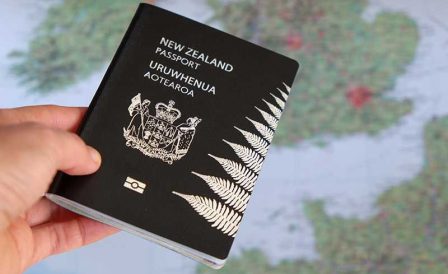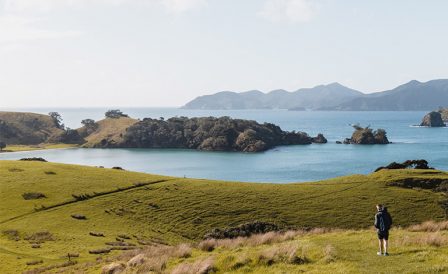Content:
- Family visa
- Proof of Partnership
- Kindergartens in New Zealand
- Schools in New Zealand
- Higher education
- Free time and entertainment for children
Family Visas in New Zealand
You can move to New Zealand with your family – your partner and / or children. Let’s consider different visas of the main applicant to understand which options are available for his / her family.
 When you have a visitor visa
When you have a visitor visa
If you plan to come to New Zealand as a tourist or simply to visit with your family for some time on a visitor visa, you need to include your family members in your application. Accordingly, your entire family will also have the opportunity to obtain visitor visas together with you.
Read more about visitor visa on the INZ website.
 When you have a student visa
When you have a student visa
Language Courses
If you plan to study on language courses but would like your partner and/or children to accompany you, they may be eligible for their own separate Visitor Visas. Such visas do not grant the right to work but do allow the partner and children to study for up to 12 weeks in total.
Alternatively, you may consider separate Student Visas for your family, but these require mandatory study.
Keep in mind that obtaining such family visas when you are only going for language courses can be somewhat more difficult than in other cases. However, it all depends on your other family and financial circumstances, as well as your future plans.
More information on visas is available on the INZ website:
Partner of a Student Visitor Visa
Child of a Student Visitor Visa
Professional Education
If you plan to study in professional programmes (Certificate, Diploma, Bachelor’s, Master’s, etc.), you can also bring your family on partnership-based Visitor Visas. However, under certain conditions, your partner may instead be eligible for a Work Visa.
In turn, if a child’s parent holds a Work Visa, the child can apply for a Student Visa for free education at school for children aged 5 to 18 (Domestic Student Visa). For children under 5, a Visitor Visa is required, which allows them to attend kindergarten.
Programmes that allow your partner to apply for a Work Visa:
- Master’s Degree (Level 9) and PhD (Level 10) in any field
- Level 7 and Level 8 programmes specifically listed in the Green List of in-demand qualifications
If you are studying in such a diploma-level programme, your partner is entitled to a Work Visa for the duration of your studies. At the same time, a school-aged child is entitled to free education at state schools because at least one parent has a Work Visa.
While on a Work Visa, your partner may study for up to 12 weeks. If longer study is required, they must apply to change the conditions of their visa to include the right to study.
More information on visas is available on the INZ website:
Partner of a Student Work Visa
 When you have Work Visa
When you have Work Visa
If you already hold a Work Visa, whether it is a Post Study Work Visa granted after completing a diploma-level programme or a visa obtained with employer support, your partner is also entitled to a Work Visa for the same duration. Accordingly, school-aged children can attend public schools free of charge.
Read more about the visa on the INZ website.
 When you have a residency or citizenship
When you have a residency or citizenship
Partners of New Zealand residents or citizens can likewise apply for a Work Visa. More information about this visa is available on the INZ website.
If certain conditions are met, such as an IELTS score of 5.0, living together in a stable relationship for one year or more, and some other specific requirements, it is also possible to apply for residency under the partnership category. More details about this are available on the INZ website.
Proof of Partnership
To be considered a partner, it is not enough to simply be married. In fact, marriage is not even a required condition. In any case, when applying for partnership visas, you will need to prove your relationship and cohabitation. Acceptable evidence may include: a marriage certificate or contract, birth certificates of joint children, joint property ownership, financial interdependence, joint trips, shared bills, and many other documents.
For assistance with partnership visa applications, you can use the services of professional immigration lawyers or advisers.
Alternatively, you can research the process yourself and try to apply for the necessary visas. More details on relationship evidence can be found on the INZ website.
Kindergartens in New Zealand
Pre-school education in New Zealand begins at the time of birth and continues until entering primary school (5 or 6 years). It is not compulsory, nevertheless, about 95% of children go to kindergartens and other pre-school institutions.
From 3 to 5 years of age, a child can go to a kindergarten for up to 20 hours a week for free, regardless of the type of visa you have. The state subsidises pre-school institutions, thereby helping young families. In other cases, an hour of supervision of the child in a kindergarten costs from NZ $ 8 to NZ $ 12.
In New Zealand, there are about 4,000 licensed preschools, which include kindergartens, educational centres, play centres and children’s playgroups. In some preschool institutions, there are registered teachers, and in others, parents themselves take turns supervising the kids. Also, in some cases, there is an opportunity to invite teachers to the house, which can also be subsidised by the government.
Despite the fact that most of the pre-school institutions teach in English, there are many pre-school institutions that target immigrant children and those of other cultures. For example, you can find kindergartens with Russian teachers and children, kindergartens for Maori, for people from Asia and the Pacific island countries.
It may help:

Schools in New Zealand
Primary and secondary school in New Zealand is the second level of the country’s educational system. The school system of education consists of 13 years, children study from 5 years of age and finish at 18-19 years of age. Unlike pre-school education, schooling is compulsory from 6 to 16 years.
Schools in New Zealand are more like fairy tale. Here they not only teach general education, as well as specific subjects in the upper grades but also help children develop all around. Music lessons in well-equipped classes, theatre classes, robotics, art and dance groups, a huge selection of sports activities and clubs; surfing, skateboarding, sometimes even horse riding and much more. And all this is accessible even in good public schools.
A very interesting feature of schooling in New Zealand is that a child can start school on his 5th birthday! It is not necessary to wait for the beginning of the next academic year, so many children in New Zealand go to school on their birthday.
Most New Zealand children go to schools that are located near their place of residence. Many schools give priority to enrolling children who live nearby. If you want your child to go to a school that is located in another area of the city, a place in the school will not be guaranteed, and you may be refused.
Cost of Schooling
In New Zealand, there are two types of schools: public and private. State educational institutions adhere to the national education program. For citizens and residents, public schools are free of charge. In addition, a child can get the status of a local student (Domestic Student) if at least one of his parents has citizenship, residency or even a work visa. If not, then the child is considered an international student and studies cost from NZ $ 16,000 a year or more. In addition, even with free education, parents do pay small fees for school uniforms, textbooks and extracurricular activities.
Private schools have their own values, goals and objectives, and often follow a certain philosophy and religion. These schools receive partial funding from the state but mostly exist at the expense of paying parents. Private schools develop their own training programs and are not required to adhere to the national education program. The cost in such schools starts from about NZ $ 25,000 a year or more.
For foreign students, free English classes are provided in schools, so they are usually accepted to the school even with an elementary level of English.
It may help:
Higher Education in New Zealand
Compulsory schooling in New Zealand requires graduation from 12-13 grades. For those countries, where the duration of studying in a high school does not correspond to the schooling system in New Zealand, it is almost impossible to apply to a New Zealand university right after graduating from the school.
If that’s the case, in order to prepare for graduate admission to universities or institutes in New Zealand, you can use the following options:
- Pass a year of university training in your home country
- Undergo a Foundation Year in New Zealand, starting at NZ $ 20,000 per year
- Apply not to a university, but a New Zealand Institute for the Diploma program, which will allow you to get a college education over 3-4 years, even to Bachelor level, without any loss of time.
The cost in private universities starts from NZ $ 20,000 per year, and public ones from NZ $ 35,000 per year.
In order for your child to get higher education at prices for local students (from only NZ $ 7,000 a year) they must have resident status. Until then, they will be considered foreign students and only qualify for prices for foreigners, without subsidies from the state.
It may help:
Free time and entertainment
- Playgrounds for kids
- Lollipops playland
- Zoo
- Butterfly park
- Botanic garden
- Planetarium
- Auckland’s tower – Skycity
- Gallery (with playing room)
- Amusement park
- Auckland’s libraries (with playing rooms)
- Vehicle museum (with a huge playing room)
- Maritime museum
- Auckland’s museum
- Oceanarium
- Sheep farm
- Farm
- Countrypark
- Cafe for kids and adults
- 25 parks of Auckland and surroundings
- All for kids’ leisure and entertainment
Contact us and we will help to move to New Zealand with your family!



